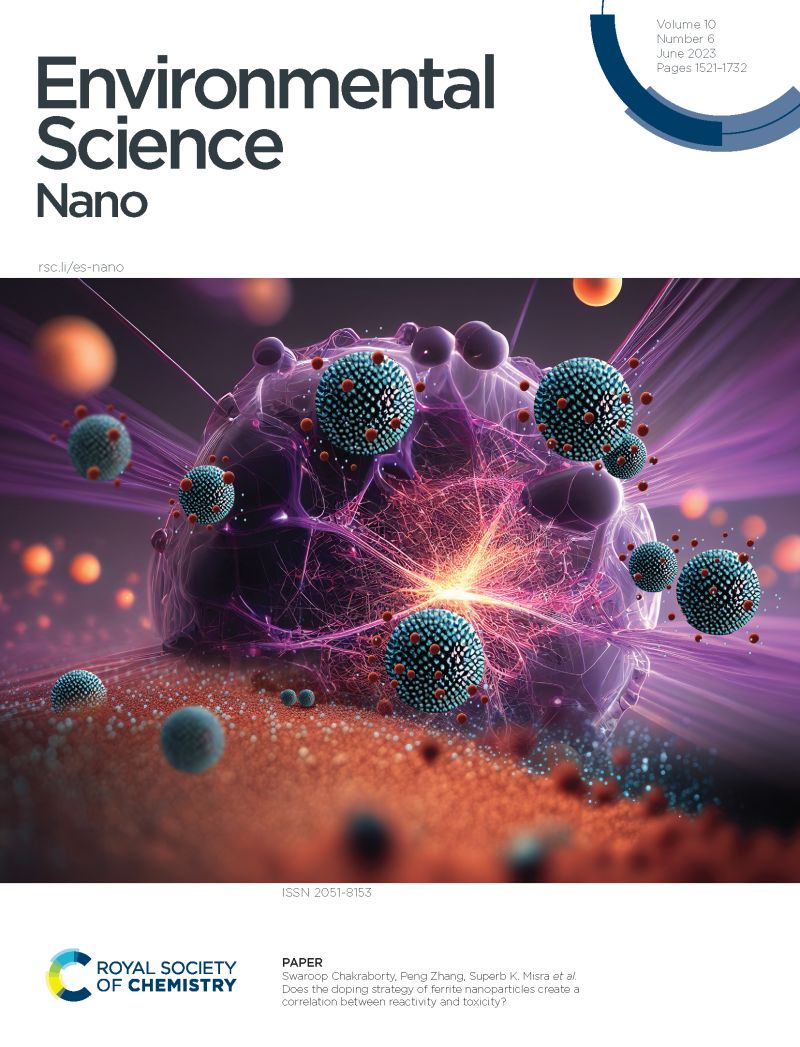Tailoring Nanomaterials towards Global One Health: A Promising Nano-strategy against Antibiotic Resistance
IF 5.8
2区 环境科学与生态学
Q1 CHEMISTRY, MULTIDISCIPLINARY
引用次数: 0
Abstract
The management of antibiotic resistance gene (ARG) contamination in the soil-plant system is a critical area of research with significant implications for public health and environmental sustainability. Recently, engineered nanomaterials (ENMs) have been developed to enhance plant growth and address the global food crisis. Studies on the effects of nanomaterials mostly indicate an increase in the spread of antibiotic resistance, while emerging findings reveal the potential of ENMs in mitigating ARG pollution. Unlike existing mechanisms such as adsorption, DNA damage, and microbial disinfection involved in ARG removal, ENMs are specifically modified (e.g., with particular chemical compositions or surface charge adjustment) to inhibit the transfer of ARGs and migration of antibiotic-resistant bacteria. The integration of ENMs with advanced technologies (e.g., CRISPR gene editing) holds great promise for remediating antibiotic resistance in soil-plant systems. Here, we provide an overview of ENM-ARG interactions and propose applications of tailored ENMs to inhibit ARG dissemination during the development of nano-enabled agriculture, addressing major challenges and directions for optimizing efficacy and safety of ENMs-based strategies for mitigating ARG contamination in agriculture.求助全文
约1分钟内获得全文
求助全文
来源期刊

Environmental Science: Nano
CHEMISTRY, MULTIDISCIPLINARY-ENVIRONMENTAL SCIENCES
CiteScore
12.20
自引率
5.50%
发文量
290
审稿时长
2.1 months
期刊介绍:
Environmental Science: Nano serves as a comprehensive and high-impact peer-reviewed source of information on the design and demonstration of engineered nanomaterials for environment-based applications. It also covers the interactions between engineered, natural, and incidental nanomaterials with biological and environmental systems. This scope includes, but is not limited to, the following topic areas:
Novel nanomaterial-based applications for water, air, soil, food, and energy sustainability
Nanomaterial interactions with biological systems and nanotoxicology
Environmental fate, reactivity, and transformations of nanoscale materials
Nanoscale processes in the environment
Sustainable nanotechnology including rational nanomaterial design, life cycle assessment, risk/benefit analysis
 求助内容:
求助内容: 应助结果提醒方式:
应助结果提醒方式:


